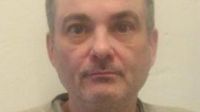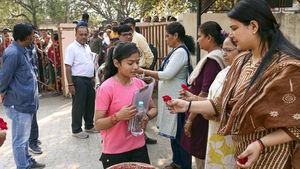Wendell Arden Grissom was executed by lethal injection on Thursday, March 20, 2025, for the murder of 23-year-old Amber Matthews, marking the first execution in Oklahoma of the year and the ninth in the United States. Grissom's execution follows a brutal crime committed in November 2005 that forever altered the lives of many.
The crime took place on November 3, 2005, in Watonga, Oklahoma, when Grissom and a homeless hitchhiker, Jessie Johns, targeted the home of Dreu Kopf. At the time, Kopf was inside with her two young daughters and her friend Amber Matthews. Grissom initially asked if Kopf’s husband was home before forcing entry and opening fire, laughing as he shot. Grissom shot Kopf in the wrist; however, she bravely attempted to fight back, which ultimately led to more violence.
As chaos erupted, Matthews grabbed one of Kopf's daughters and ran to hide with her inside a nearby bedroom. Separated from the fray, Matthews was eventually shot in the back of the head while holding the child. Tragically, she did not survive. Schmidt and Johns fled the scene in Kopf's husband’s four-wheeler but were later apprehended thanks to tips from vigilant local citizens.
Dreu Kopf, who survived the horrific incident, has faced a long road to recovery, emotionally and physically. In her victim impact statement, she recounted the fear and paranoia that followed the attack, saying, “I lived in fear 24/7.” Her now-adult daughters, Rylee and Gracie, witnessed their mother’s struggles growing up, recalling how their mother would call their father repeatedly, terrified to be left alone at home.
In the face of all this, Kopf has expressed a will to forgive Grissom, stating, “I have to forgive this guy or Grissom is going to ride on my shoulder the rest of my life and control the rest of my life.” This moment of potential closure came with Grissom's execution, which she plans to witness alongside her now-grown daughters.
During the execution, Grissom issued a lengthy final statement, apologizing to everyone he had hurt. He expressed a prayer for their forgiveness, making a notable remark: “I consider this a mercy, I’m going to be alright.” These comments seemed to complicate emotions at the event, especially among Matthews' family and friends.
Family members of Amber Matthews had a strained reaction to Grissom’s perceived contrition. Matthews' aunt, Rita Russell, described her niece as a “pretty angel,” lamenting that “we never got to see her get married or have kids.” Similarly, Matthews’ father, Garry Matthews, expressed profound grief, explaining that reminders of his daughter still sting: “The last restaurant we ate in, I can’t go back. Everything that reminds me of her brings back the pain.”
In the lead-up to his execution, Grissom’s legal team attempted to secure clemency, arguing that his developmental issues and bouts with addiction excused his actions. They pointed to a troubled childhood marked by health issues stemming from birth complications and traumatic head injuries from several motorcycle crashes during his youth, which they argued affected his cognitive and emotional development.
Conversely, Oklahoma Attorney General Gentner Drummond vehemently rejected those claims, asserting that the brutal, random attack on “innocent strangers” warranted the death penalty. The Oklahoma Pardon and Parole Board voted against granting Grissom clemency, determining his actions to be inexcusable.
As the execution drew near, Grissom was resolute, remarking in a written message before the event that he was unafraid of dying. “I’m not scared of dying because I know where I’m going,” he stated, suggesting a sense of resignation to his fate.
Grissom's last meal consisted of a medium Canadian bacon supreme pizza, a pint of vanilla ice cream, and a pint of Coca-Cola before the execution. His execution occurred at the Oklahoma State Penitentiary and was witnessed by family members of both the perpetrator and the victims, reflecting the complex emotions surrounding the event.
In the aftermath of the execution, Kopf and Matthews' family members spoke with the media, emphasizing the lasting impressions of the tragedy on their lives. “You guys really need to remember (Amber) because she was unbelievable,” Kopf insisted, shining a light on Matthews’ significance to her life. In stark contrast to Grissom's plea for forgiveness, Matthews’ stepsister, Kathy Johnson, remarked, “I didn’t care what he had to say. As far as him wanting mercy, he doesn’t deserve it.”
Grissom’s execution is a somber reminder of the tragic and violent events of that November day two decades ago. As discussions about the death penalty continue to evolve in the United States, this case serves as a stark illustration of its heavy emotional toll on both victims' families and perpetrators alike.





